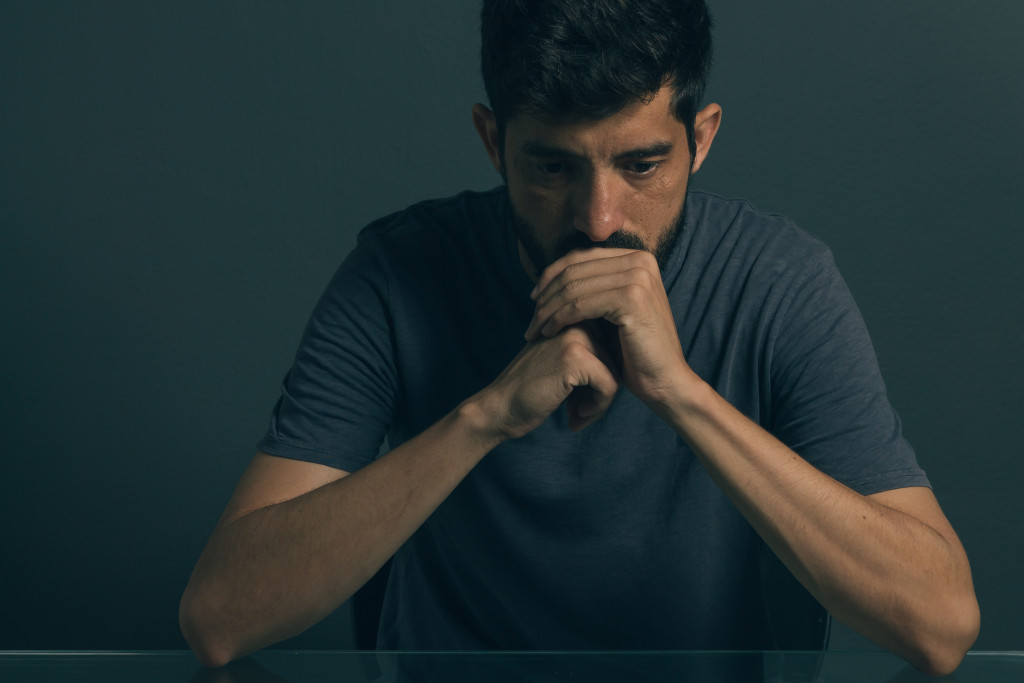Depression has been described as being in the darkest room of your house, just before dawn. It’s lonely, disorienting, and you feel trapped with no way out. It can get you down, making it hard to do even the simplest things in life, like brushing your teeth or making yourself breakfast.
Many people don’t know how to fight off depression, but fortunately, there are many ways to help yourself out of the darkness if you find yourself stuck in depression’s depths. Here are things you can do to fight off depression.
Set Goals
Setting goals is an excellent way to find meaning in life and work toward something bigger than yourself. Goals are also a fantastic coping mechanism for combating low moods, as they allow you to focus on something positive. Of course, any depressed person knows that reaching your goals can be a challenge; even so, it’s worth working towards them—and writing them down makes their achievement seem more attainable.
Challenge Inner Negative Thoughts
Thoughts are powerful, and a negative attitude may be holding you back from getting what you want. It’s easy to convince yourself that your current situation is completely hopeless, but once it has been verbalized, it becomes easier to talk yourself out of it. When negative thoughts pop up (and they will), take a moment to pause and question whether or not they’re true. In most cases, they aren’t—which means they’re worth ignoring.
Find Self-care Activities That Work for You
If you’re dealing with chronic stress, anxiety, or depression, self-care is not a luxury—it’s a necessity. And when it comes to managing your mental health, experts agree that one size does not fit all. Rather than trying to make yourself feel better with retail therapy, find out what works for your body and mind. You can have a spa treatment, go hiking, or travel somewhere remote.
Get Enough Sleep
We all know sleep is essential, but many of us don’t get enough. Sleep deprivation has been linked to increased stress levels and increased susceptibility to health problems such as heart disease, obesity, and diabetes. Make sure you’re getting seven to nine hours a night. According to some experts, most adults need about 90 minutes more sleep than they think.
If you have trouble sleeping, try cutting out caffeine in the afternoon and evening, eating regularly, exercising, limiting your screen time before bed, turning your bedroom into a sleep sanctuary with an environment conducive to restfulness, and practicing mindfulness techniques for anxiety reduction.
Talk to Your Doctor About Exercise

Exercise has been proven in study after study to boost mood and, yes, help with symptoms of depression. It is particularly true if you exercise outdoors—even just seeing a bunch of green space and blue sky can be a powerful mood booster. If you want to try something new, go for martial arts like tai chi or karat.
Both activities have been shown to give people prone to anxiety a mental boost without too much extra physical exertion. There are virtual tai chi classes you can enroll in, so you don’t even need to sign up for a gym membership. Tai chi’s movements emphasize balance, coordination, and flexibility. At the same time, they lower stress levels. You’ll also get a bonus from getting more sleep and learning how to meditate, which has also been shown to make all kinds of mental woes less severe.
Communicate With Others
One of the most effective ways to beat depression is to talk about how you’re feeling with friends and family members. Let them know if they can help in any way, and don’t hold back when it comes to sharing your emotions. Knowing that someone else cares about you is enough sometimes, but also let them know if there’s something specific they can do or a concrete action item for them. It may sound difficult or scary at first, but talking is often all it takes for some people struggling with depression.
If you’re feeling down, don’t be afraid to reach out. Being around people that care about you will help motivate you and boost your spirits; they’ll also be there when you need advice or a shoulder to cry on. Getting professional help is another way of dealing with depression and loneliness, so if talking with someone doesn’t help, seek treatment as soon as possible.
Address Underlying Causes
Depression symptoms are often a response to an underlying problem or stress. If it’s caused by a situation you don’t like, consider how you can change it. Start by being honest with yourself about what is causing your feelings and consider ways to deal with it. For example, if work is overwhelming, speak with your manager about delegating some tasks. If personal issues are causing distress, consider confiding in a loved one who could help provide support and constructive feedback on how best to deal with them.
Remind people that good mental health is an ongoing battle. Good mental health doesn’t happen once; it’s an ongoing effort. There will always be things that come up and throw us off our game, but learning how to identify and manage those problems is key. If a solution isn’t working, don’t be afraid to experiment with another one. If there’s a specific issue in your life right now, then why not try out as many potential solutions as possible?
